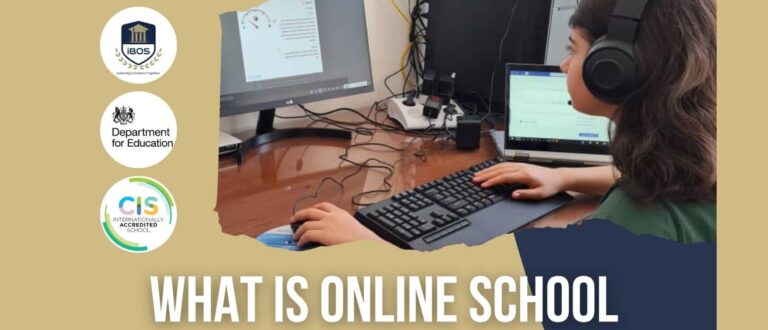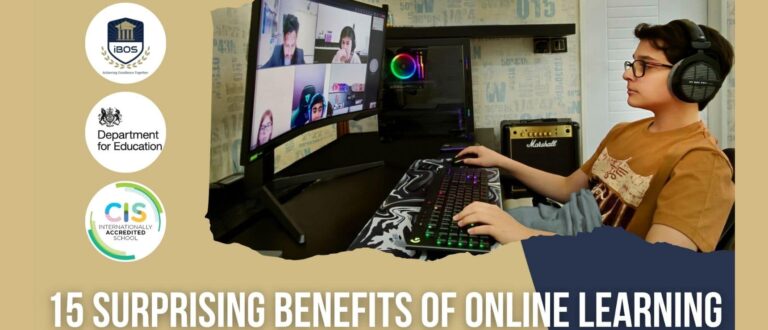Choosing the right school is hard enough in your home country, but it becomes even more challenging when you’re moving overseas. Should you send your child to an independent international school or a nearby local school—or could online school be the answer?
Need help making the decision? Here’s a handy guide to the pros and cons of each.
The Pros and Cons of Local Schools
If you’re planning to live overseas long-term, it’s important to make sure your child is immersed in their new local culture. That’s why many parents moving abroad consider sending their child to a local state or private school.
Local schools are easy to find—no matter where you decide to live in your new country, you’ll likely have at least one school within traveling distance. Plus, at a local school, your child will be surrounded by classmates who were born and raised in the country. This gives them plenty of opportunity to learn the language, lifestyles, and customs.
That being said, there are some clear downsides to enrolling at a local school overseas. While these schools do immerse your child in the local language, not every young student can pick up a new language easily. There’ll always be a learning curve, and the longer your child spends getting to grips with the language, the further they’ll fall behind in classes.
Many children also struggle to make friends with confidence when they can’t keep up with the conversation, so it could be quite some time before your child finds their tribe. These issues are of particular concern for older students, who may not be able to “absorb” a new language as quickly as a young child.
Finally, just as in your home country, quality can vary greatly when it comes to local schools. Even if you have a wide selection of schools within traveling distance of your new home, there’s no guarantee that any of them will offer the teaching and learning standards you expect for your child.
The Pros and Cons of International Schools
Given that language barriers are one of the key concerns at local schools, English language teaching is one of the top benefits of an independent international school. Most international schools operate in English, so your child will have a lot less trouble making friends and settling into schoolwork.
On the topic of schoolwork, international schools typically offer a British or American curriculum, such as GCSEs or AP. If your child has already been working towards these qualifications, opting for an international school ensures they’ll be able to continue. Typically, local schools only teach their country’s national curriculum, and that scheme of learning may be very different to the curriculum your child is used to.
Of course, international schools also have their disadvantages. For one, enrolling at one can often be more difficult than you’d expect. In many countries, demand for international schooling outweighs supply. As such, parents are often faced with very lengthy waiting lists. For families moving abroad on short notice, waiting several months—or even years—simply won’t do. If you’re not moving to a major city in your new country, you may not even be able to find an international school within commuting distance. To add to the pressure, many of these schools come with hefty tuition fees running into tens of thousands per year.
On top of that, students don’t get as much opportunity to learn about local life when they’re attending an international school with few native classmates.
Online School: A Balance of Both
If you’re struggling to weigh up the pros and cons of local and international schools, there may be a solution that’s perfect for your family: online schooling. In many ways, online schools blend the benefits of local and international schooling into one—with more added advantages too.
For one, online schooling is available wherever you are, whenever you need it, at an affordable cost. A computer and an internet connection are all your child needs to get started. Whether you’re moving abroad to work in the hustle and bustle of a major city or you’re seeking a quiet life in a remote overseas town, quality education will be at your child’s fingertips. You won’t need to worry about finding a good school that’s close enough to commute to, and there are no waiting lists to deal with. In fact, you can often enrol at an online school within days, making them perfect for last-minute moves.
You’ll also be able to choose an online school that teaches in English and follows the curriculum your child is used to. As soon as new students enrol, they can jump right in where they left off in their home country and keep up to speed with their learning progress. Alternatively, want to switch your child from another country’s curriculum to British GCSEs or A Levels, for example? That’s no problem at the top online schools. The best virtual institutions offer 24/7 access to recordings of all classes and extensive study materials, so your child will have everything they need to catch up with a new scheme of learning.
Online schools are also great for making friendships. Many parents assume that lack of socialisation is a major downside to virtual schooling, but the truth is that students get plenty of opportunities to communicate with each other. Choose a great online school, and your child can join virtual clubs and extracurriculars, talk with their friends online in and out of class, and perhaps even participate in local in-person meetups.
For families who move often, another disadvantage to local and international schooling is a lack of consistency. Students have to change schools every time they arrive in a new country. This means breaking off friendships and making new ones, jumping from one way to learning to another, and more difficulties that are hard for young people to handle. Online school, on the other hand, is with you wherever you go. No matter how many times you move, your child can continue learning the same curriculum with the same teachers, all with the same friends by their side.
If you plan on staying in your new country long-term, online schooling can help there too. Virtual schools offer far more flexibility than traditional independent schools, which means students get plenty of time to enjoy life outside of education. You can use this newfound time to take your child on cultural excursions, enrol them on local language courses, and set up playdates with other children in your area. When your child isn’t confined to the classroom all day, you’ll find that there’s lots of opportunity to dive into the local lifestyle.
King’s InterHigh
With over 16 years of experience in virtual learning, King’s InterHigh is the leading UK online school for students aged 7 to 18. Teaching the British curriculum, GCSEs, A Levels, and the world’s first online IB Diploma, King’s InterHigh brings your child expert teachers, innovative learning, and a flexible school-life balance.







